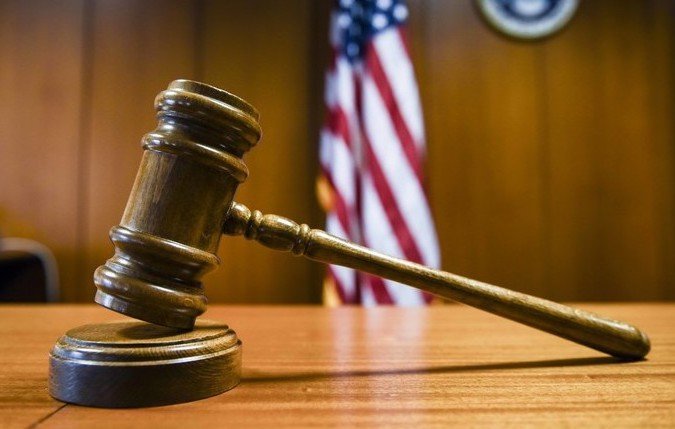Prospective jurors in the federal racketeering and drug conspiracy trial of a Pope County man heard some details of the indictment against the defendant, answered questions about their attitudes toward law enforcement agencies, crime and punishment, and other topics, as attorneys and the judge worked throughout the day Tuesday to narrow down the jury pool.
Marcus Millsap, 53, of Danville is accused of conspiracy to violate the Racketeer Influenced and Corrupt Organizations Act, aiding and abetting attempted murder in aid of racketeering and conspiracy to possess with intent to distribute methamphetamine.
Millsap is one of 55 named defendants in the case, which is related the New Aryan Empire, a white-supremacist organization in Pope County at the center of the investigation. Although believed to be an associate of the group, which began as a prison gang in the 1990s, Millsap, the final defendant awaiting resolution in the case, is not alleged to be a member of the gang.
Millsap was escorted into the courtroom Tuesday morning by federal marshals before the jury entered the courtroom. He was dressed in a dark business suit and was free of shackles and leg irons, and his escorts sat well back to either side of him as he took a seat at the defense table with his attorneys, Lloyd Kitchens of Little Rock and Lee Curry of Monticello.
Since the first indictment was handed up in late 2017, 53 people have pleaded guilty to crimes ranging from conspiracy to violate the anti-racketeering law to failure to report a felony, with 18 of the defendants sentenced and 35 awaiting sentencing. Sentences have ranged from time served to 35 years in prison. The stiffest sentence thus far has gone to Wesley Gullett, the 31-year-old reputed leader of the New Aryan Empire.
Gullett was sentenced earlier this year after pleading guilty to racketeering and drug conspiracy charges. Although a number of Millsap's co-defendants are expected to testify against him at the trial that could last up to four weeks, Gullett was not named as a potential witness by prosecutors.
If found guilty, Millsap could be sentenced to life in prison.
Jury selection is expected to conclude today by noon It began with 36 members of the 84-person pool selected to begin the questioning process. U.S. District Judge Brian Miller explained the process of bringing a defendant to trial in the federal system, including the burden of proof, all of which, he said, rests with the government.
"Does everybody understand that's the way our system works?" he asked. "That if you are charged with a crime by our government, it's the government's burden to prove the case against you, it's not your burden to disprove the case?"
Toward the end of his questioning of the jury pool, Miller asked the prospects if there was anything he had not asked that only each individual would know about themselves that should disqualify them from serving.
"I had a case once," he said, as a prelude to the question, "a defendant was driving up from Texas with cocaine. The troopers got behind him ... he pulled over and jumped out of his car and he had bags of cocaine he was throwing up in the air."
The courtroom broke into laughter as Miller explained that was one of only two cases he ever tried where he had ordered evidence to be suppressed.
"That was him throwing the cocaine up in the air," he said. "I said the video couldn't come into court and I'm not going to explain to you why."
But subsequently, Miller said, the probation office went to the defendant's residence and discovered drugs all over the house where the defendant lived with his two young children. When the defendant did go to trial, Miller said it was a straightforward case that he thought should have been decided quickly. But, he said, it took far longer than anticipated for the jury to return a verdict. Later, when talking to the jury, Miller said he discovered the reason for the extended deliberations.
"I asked what happened?" he related. "I asked what was it that held you up? I came to find out that one of the jurors was a dope dealer and he was back there telling the other jurors that that's not the way we do it.
"Now out of all the questions I asked," Miller continued, "I didn't ask who in the courtroom is a dope dealer."
Jury selection is set to resume at 9 a.m. with opening statements from both sides to follow.

